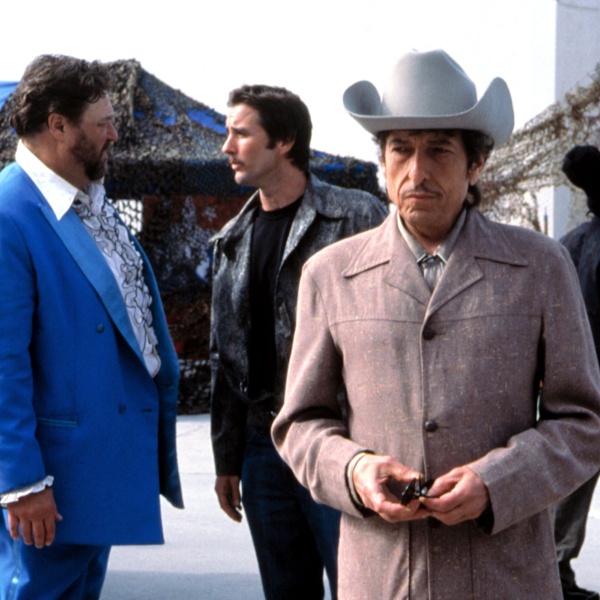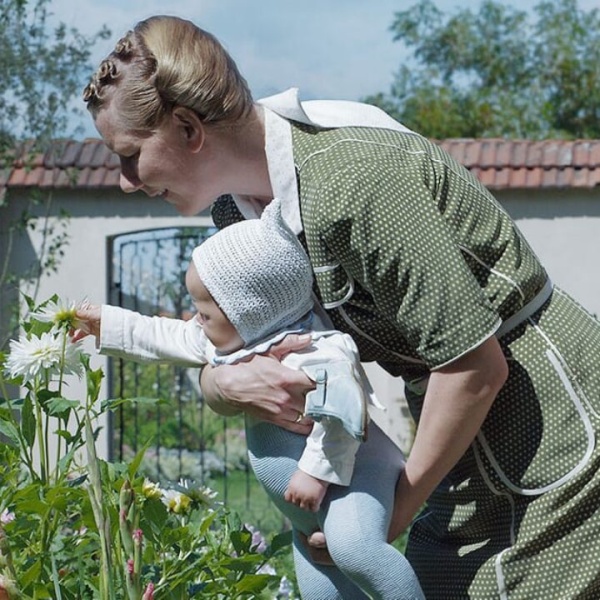Guilt, Shame and So Much Blood Pervade Ramsay’s Unflinching Drama

“We Need to Talk About Kevin” is one of the most beautifully bleak psychological fake-outs the cinema’s given us in years, as Lynne Ramsay (“Ratcatcher,” “Morvern Callar“) directs an adaptation of Lionel Shriver‘s 2003 novel. At first blush, Ramsay’s film would appear to be a look into the genesis and reasons behind the title teen’s killing spree; the film we get is something different entirely, an exploration of loss and pain and grief through the eyes of the mother (Tilda Swinton) left shattered and battered in the wake of her son’s irrational, irredeemable actions.
Ramsay’s been out of the loop for a while — she was famously slated to helm Alice Sebold‘s “The Lovely Bones before Peter Jackson took the job only to wholeheartedly botch it; her last film was 2002’s “Morvern Callar.” What “We Need to Talk About Kevin” makes abundantly clear is that her absence is far more our loss than hers. The novel was a series of letters, written by Eve (Swinton) to her husband in the aftermath of Kevin’s actions; the film flickers and skips between moments like memory, or a bad dream, and the net effect is both as plainspoken as a death sentence and as impressionistic as color on a stark background.

The formalist construction here is a thing of wonder — there’s a brute splash or slash of red in so many scenes that you think Ramsay must be joking, and then she throws in a brief nod to assure you that she is (watch carefully in the grocery store) and then continues so that it is clear she is not. Jonny Greenwood‘s muted score mixes with blues and pop numbers, some too-on-the-nose and some not. The sonic collage of the film — suburban sprinklers hissing and ticking like coiled vipers, far-away sirens and up-close whispers — also works to establish mood and tone with real and rich effect.

Swinton is superb, and if there were any doubt she’s one of our greatest living actresses, that has now been removed with one swift stroke. We see Eve as a young woman in love, as a young mother in crisis, as an older mother in … denial? Panic? Ignorance? We’re shown Eve’s flaws and failings as a parent — but if being an imperfect mother — tired and frustrated and ambivalent about parenthood — were enough to make a child a killer, the gutters would be overflowing with blood. 
Rather, the script (by Ramsay and collaborator Rory Kinnear) and Ezra Miller‘s work as the teen Kevin (aided by Rock Duer and Jasper Newell as the toddler-aged and childhood Kevins) make it clear that Kevin is a manipulative monster, a sneering sociopath, and that looking for reasons would be, at best, folly; Kevin is one of those people where, bluntly, the machinery came off the assembly line already broken. Some of Kevin’s plots and stratagems will seem almost ridiculous — and they are — but at the same time, anything less would offer the film, and the audience, and the characters, an easy series of outs. In “We Need to Talk About Kevin,” you gaze into the abyss and it can’t even be bothered to make eye contact with you. 
John C. Reilly‘s work as Eve’s husband Franklin is peripheral — as it should be. Swinton’s Eve is the film — its eyes, its voice and its perspective — and watching Eve struggle mightily to achieve small victories in the face of colossal losses is immensely affecting. At times, Swinton is pale and clammy with grief and agony; when she smiles, it’s with the luminous blur of a dying light bulb. Eve is not perfect; no one knows this with more fervor, or with more reason, than Eve herself. 
We’d hesitate to call “We Need to Talk About Kevin” a thriller, but there are moments where we sat riveted and fretful with the slow-wound tension of the moment. We’d hesitate to call it a drama, but it had moments of truth — as big as agony, as small as a nod of the head — that clutched at our heart. We’d hesitate to call the film a tragedy, even with classic themes and images nestled among the station wagons and tile hospital corridors, and as Swinton scrubs and scrapes at red paint like Lady Macbeth. We can call “We Need to Talk About Kevin” fascinating, and chilling, and a welcome return for a director who shouldn’t have had to be away for as long as she was; Ramsay’s look at guilt, loss and shame is the kind of hard, unflinching stuff that gives off sparks of insight and truth each time it strikes hard at your brain and heart. [A] — James Rocchi





